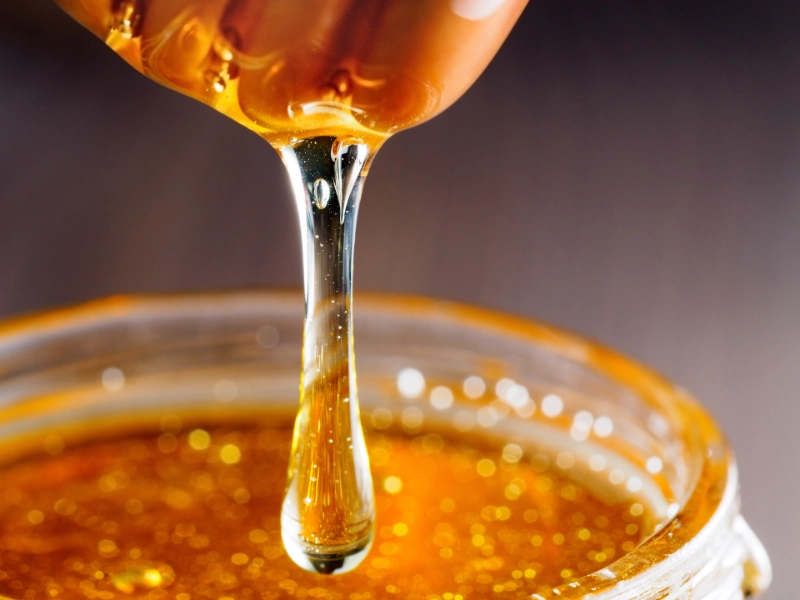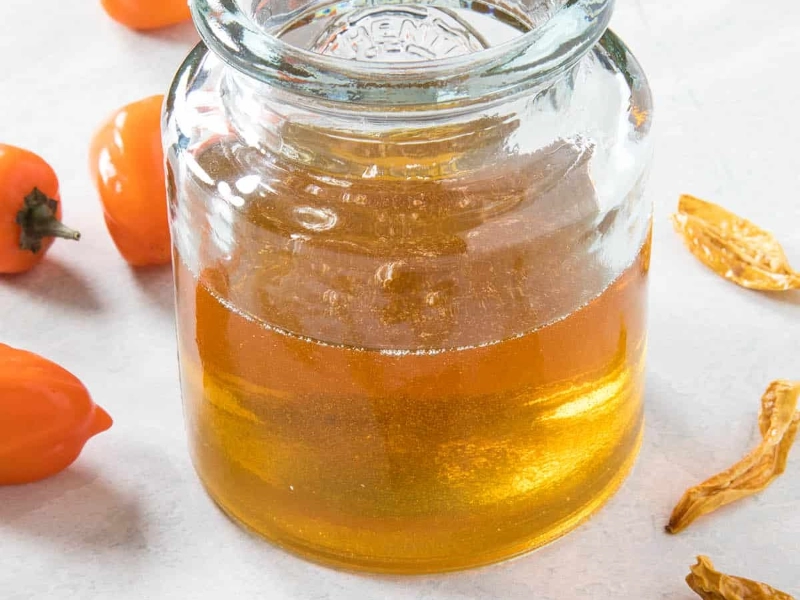Honey: A Natural Alternative for Weight Control
Many people on a weight-loss programme include honey as a natural sweetener. By encouraging fat metabolism and lowering body water content, so generating water weight loss and helping in weight loss. Raw honey is less processed and has more of the helpful nutrients and enzymes, hence try to choose it for weight loss.
Fructose

Antioxidants
 Honey's low glycemic index and enhancement of insulin sensitivity help to prevent too rapid weight gain. In human humans, it also reduces total cholesterol (TC), triglycerides and low-density lipoprotein (LDL) and raises high-density lipoprotein (HDL). Honey possess antibacterial, antioxidant, and anti-inflammatory qualities. Strong anti-oxidant with anti-microbial action against fungus, viruses, and bacteria; counteracts oxidative stress.
Honey's colour mirrors the nectar source; darker types are frequently richer in antioxidants than lighter ones. But since all kinds of honey are good in moderation, don't feel pressured to get the most costly or darkest honey.
Honey's fermentable sugars and non-sugar constituents mediate its immunomodulating activity. It raises in healthy human individuals circulating antibodies, natural killer cells, and white blood cell numbers. In those with cirrhosis, it also reduces inflammatory indicators including alanine transaminase, lactate dehydrogenase and creatinine kinase. In E. coli, it also lowers expression of quorum sensing genes and curli proteins and stunts pathogenic S. aureus in vitro growth.
Honey's low glycemic index and enhancement of insulin sensitivity help to prevent too rapid weight gain. In human humans, it also reduces total cholesterol (TC), triglycerides and low-density lipoprotein (LDL) and raises high-density lipoprotein (HDL). Honey possess antibacterial, antioxidant, and anti-inflammatory qualities. Strong anti-oxidant with anti-microbial action against fungus, viruses, and bacteria; counteracts oxidative stress.
Honey's colour mirrors the nectar source; darker types are frequently richer in antioxidants than lighter ones. But since all kinds of honey are good in moderation, don't feel pressured to get the most costly or darkest honey.
Honey's fermentable sugars and non-sugar constituents mediate its immunomodulating activity. It raises in healthy human individuals circulating antibodies, natural killer cells, and white blood cell numbers. In those with cirrhosis, it also reduces inflammatory indicators including alanine transaminase, lactate dehydrogenase and creatinine kinase. In E. coli, it also lowers expression of quorum sensing genes and curli proteins and stunts pathogenic S. aureus in vitro growth.
Minerals
 Minerals abound in honey including iron, calcium, copper, potassium, magnesium, zinc. It also boasts amino acids and vitamins (B6, thiamine, niacin and pantothenic acid). Manuka honey, derived from the Leptospermum scoparium plant in New Zealand, is the healthiest type. Greater conductivity of this kind indicates its mineral content than of other varieties.
Honey has been found in studies to have antibacterial, anti-inflammatory, apoptotic, and antioxidant qualities. Its advantages in lipid-metabolism and antioxidants also aid to avoid metabolic syndrome.
Honey's reduced total cholesterol and triglycerides and increase of high-density lipoprotein help to enhance lipid metabolism. It might also cut oxidative stress and have anti-inflammatory properties. Treating Helicobacter pylori, the microorganism causing gastritis and peptic ulcers, honey has proven to be rather successful. Even in strains resistant to other antibiotics, a 20% honey solution was proven to stop Helicobacter pylori from proliferating. This is so due to the phenolic acids and flavonoids it comprises.
Minerals abound in honey including iron, calcium, copper, potassium, magnesium, zinc. It also boasts amino acids and vitamins (B6, thiamine, niacin and pantothenic acid). Manuka honey, derived from the Leptospermum scoparium plant in New Zealand, is the healthiest type. Greater conductivity of this kind indicates its mineral content than of other varieties.
Honey has been found in studies to have antibacterial, anti-inflammatory, apoptotic, and antioxidant qualities. Its advantages in lipid-metabolism and antioxidants also aid to avoid metabolic syndrome.
Honey's reduced total cholesterol and triglycerides and increase of high-density lipoprotein help to enhance lipid metabolism. It might also cut oxidative stress and have anti-inflammatory properties. Treating Helicobacter pylori, the microorganism causing gastritis and peptic ulcers, honey has proven to be rather successful. Even in strains resistant to other antibiotics, a 20% honey solution was proven to stop Helicobacter pylori from proliferating. This is so due to the phenolic acids and flavonoids it comprises.
Calories
 From ancient times, honey has been a sweet delicacy utilised both as a natural sweetener and therapeutic agent. Made by bees from floral nectar, it includes fructose and glucose, two simple sugars. Like other simple sugars, it counts a lot of calories and, if misused, can cause weight increase.
But depending on the flower sources from which honey was gathered, it offers trace levels of nutritional fibre and protein as well as some vitamin and mineral value unlike processed sugar. Unique plant chemicals found in honey also function as antioxidants in the body, therefore lowering unstable molecules known as free radicals that could harm cells and induce ageing and diseases including cancer and heart disease.
Although honey has many health advantages, it should be drank in moderation in line with a good general diet. Honey used excessively may cause moderate adverse effects like weakness, vertigo, and too much perspiration. Furthermore, too much honey could raise a person's risk of some medical disorders like heart disease and type 2 diabetes.
From ancient times, honey has been a sweet delicacy utilised both as a natural sweetener and therapeutic agent. Made by bees from floral nectar, it includes fructose and glucose, two simple sugars. Like other simple sugars, it counts a lot of calories and, if misused, can cause weight increase.
But depending on the flower sources from which honey was gathered, it offers trace levels of nutritional fibre and protein as well as some vitamin and mineral value unlike processed sugar. Unique plant chemicals found in honey also function as antioxidants in the body, therefore lowering unstable molecules known as free radicals that could harm cells and induce ageing and diseases including cancer and heart disease.
Although honey has many health advantages, it should be drank in moderation in line with a good general diet. Honey used excessively may cause moderate adverse effects like weakness, vertigo, and too much perspiration. Furthermore, too much honey could raise a person's risk of some medical disorders like heart disease and type 2 diabetes.








